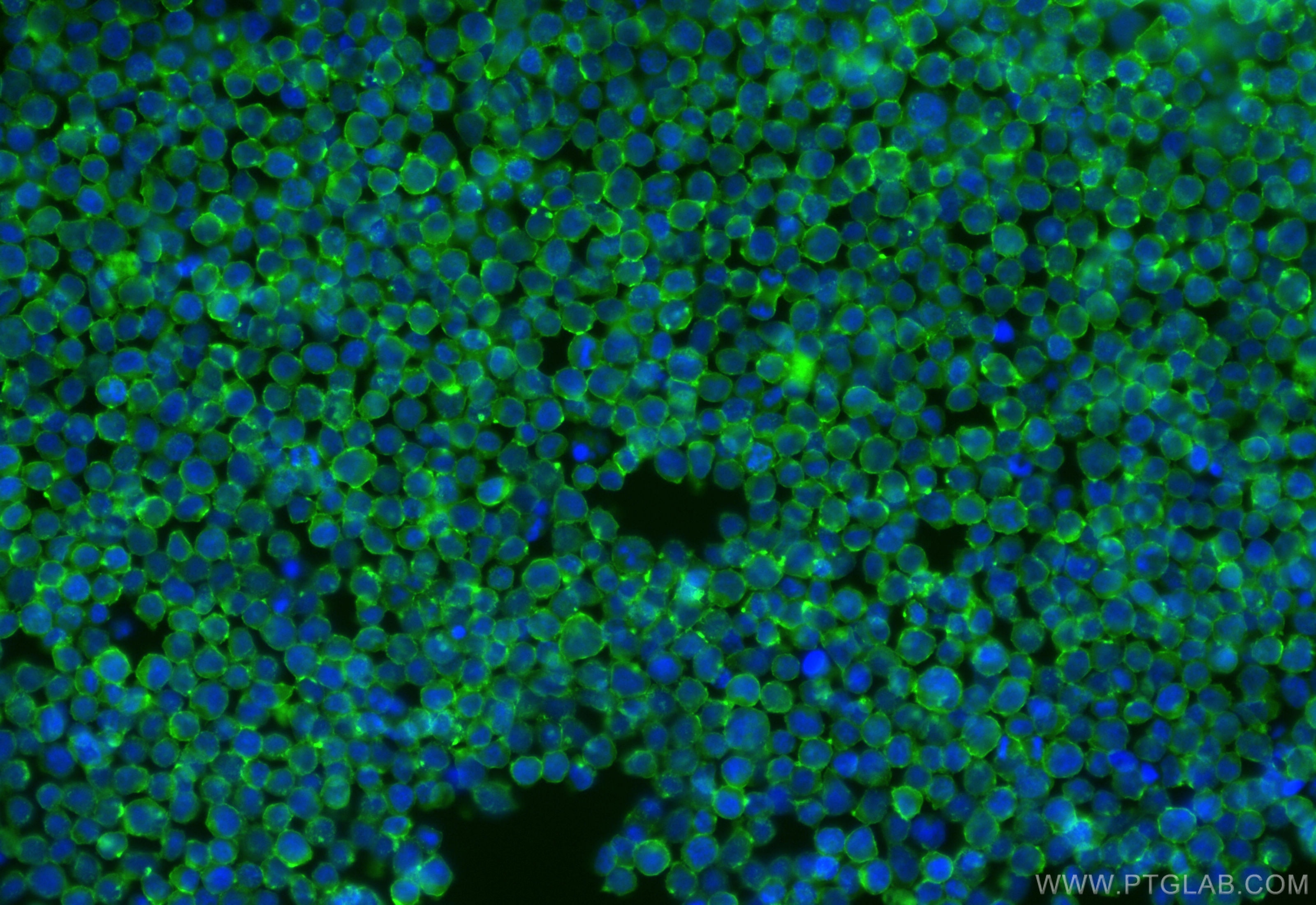SELPLG/CD162 Rekombinanter Antikörper
SELPLG/CD162 Rekombinant Antikörper für IF/ICC
Wirt / Isotyp
Kaninchen / IgG
Getestete Reaktivität
human
Anwendung
IF/ICC
Konjugation
CoraLite® Plus 488 Fluorescent Dye
CloneNo.
241297G10
Kat-Nr. : CL488-84500
Synonyme
Geprüfte Anwendungen
| Erfolgreiche Detektion in IF/ICC | Jurkat-Zellen |
Empfohlene Verdünnung
| Anwendung | Verdünnung |
|---|---|
| Immunfluoreszenz (IF)/ICC | IF/ICC : 1:50-1:500 |
| It is recommended that this reagent should be titrated in each testing system to obtain optimal results. | |
| Sample-dependent, check data in validation data gallery | |
Produktinformation
CL488-84500 bindet in IF/ICC SELPLG/CD162 und zeigt Reaktivität mit human
| Getestete Reaktivität | human |
| Wirt / Isotyp | Kaninchen / IgG |
| Klonalität | Rekombinant |
| Typ | Antikörper |
| Immunogen | Rekombinantes Protein |
| Vollständiger Name | selectin P ligand |
| Berechnetes Molekulargewicht | 412 aa, 43 kDa |
| GenBank-Zugangsnummer | BC029782 |
| Gene symbol | SELPLG |
| Gene ID (NCBI) | 6404 |
| Konjugation | CoraLite® Plus 488 Fluorescent Dye |
| Excitation/Emission maxima wavelengths | 493 nm / 522 nm |
| Form | Liquid |
| Reinigungsmethode | Protein-A-Reinigung |
| Lagerungspuffer | PBS with 50% glycerol, 0.05% Proclin300, 0.5% BSA |
| Lagerungsbedingungen | Bei -20°C lagern. Vor Licht schützen. Nach dem Versand ein Jahr stabil. Aliquotieren ist bei -20oC Lagerung nicht notwendig. 20ul Größen enthalten 0,1% BSA. |
Hintergrundinformationen
SELPLG (selectin P ligand), also known as CD162 or PSGL-1, is a 120 kDa type I transmembrane mucin-like glycoprotein. It is an adhesion molecule expressed on the surface of neutrophils, monocytes, and most lymphocytes as a homodimer of approximately 230-250 kDa (PMID: 7545173; 1378449; 9353350). SELPLG plays a critical role in the early stages of inflammation due to its ability to bind E-selectin (CD62E), L-selectin (CD62L), and P-selectin (CD62P) (PMID: 35597982).
Protokolle
| PRODUKTSPEZIFISCHE PROTOKOLLE | |
|---|---|
| IF protocol for CL Plus 488 SELPLG/CD162 antibody CL488-84500 | Protokoll herunterladen |
| STANDARD-PROTOKOLLE | |
|---|---|
| Klicken Sie hier, um unsere Standardprotokolle anzuzeigen |


